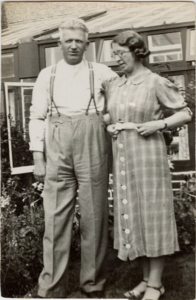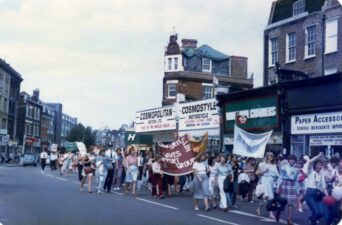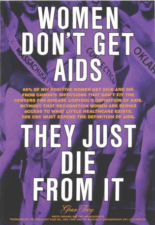Dorothy Rees, the first working-class woman ever to be elected to parliament in a Welsh constituency, was born almost 125 years ago in the booming docklands of Barry in the Vale of Glamorgan. Her hometown, which had been nothing more than a fishing village twenty years earlier, was then one of the most important coal ports in the world, exporting millions of tons of steam coal every year onto a global market hungry for energy.
In time, Dorothy Rees was elected as a municipal councillor in Barry and as a county councillor for Glamorgan – the authority she would eventually chair in the 1960s. Five years before her own parliamentary victory in 1950, she masterminded, as Labour’s election agent in 1945, Lynn Ungoed-Thomas’s wresting of the Llandaff & Barry Constituency from the incumbent Conservative, Cyril Lakin.[i] Summing up a lifetime of public service, the historian Peter Stead once described Dorothy Rees as ‘the local spokesman [sic] of the Welfare State’.
I begin these notes with a précis such as this because Welsh historiography has long struggled to reconcile the contribution of working-class women to the making of social democracy with other ideas of how society was once composed. The prevalent ‘Welsh Mam’ stereotype with its twin emphases of domestic service and matriarchy leaves little room for women as public servants, as dedicated campaigners and activists, perhaps even as amongst the greatest television screenwriters of their generation.[ii]
It has always seemed to me to be a profound irony that whereas labour history, which flourished in Wales in the 1970s and 1980s, was able to produce iconic studies of miners and their communities, for instance, or quarrymen and theirs, working-class women were nowhere to be seen. Instead, historians wrote about aristocratic figures like Charlotte Guest or Margaret Haig Thomas. In recent years, they have been joined by the equally aristocratic Ladies of Llangollen, Megan Lloyd George, and the middle-class businesswoman Amy Dillwyn.
I wrote Causes in Common, therefore, to effect a reconciliation, to examine a very familiar narrative – the creation of Labour Country, as I have called it elsewhere [iii] – entirely from the viewpoint of women, especially working-class women. This involved a rethinking of existing assumptions: that women’s involvement in local politics was the work of stand-out individuals, as Duncan Tanner once argued; that women who were elected or co-opted onto councils were given ‘women’s issues’ such as health and education to deal with and were thus marginalised, which is the argument presented in the centenary history of the Labour Party in Wales published in 2000; that the women’s movement was rooted chiefly in a Liberal political framework and thus was able to comfortably migrate into the nationalist movement in the 1970s, as was argued variously by Ursula Masson and Avril Rolph.
I disagree on each count. The arc bent, as I argue in the book, towards social democracy, towards the labour movement and its political manifestations: the Labour Party and, at least for some in the 1920s and 1930s, the Communist Party. Elected and co-opted women believed themselves to be representatives of that movement, oftentimes acting as delegates rather than as individuals. Granular examination of minute books, of newspaper reports, of the general detritus of labour history, even of the book collections and catalogues which survive from the network of miners’ institutes, reveals a remarkably vibrant world very different from the existing historiographical accounts of working-class women and their activities.
Sometimes this leads us to a restoration. An oft-repeated story about the battle between anti-fascists and Oswald Mosley’s Blackshirts in Tonypandy in the 1930s, a story I have heard many times, always follows the men who were there. Men such as the international brigade volunteer, Harry Dobson. Yet, go back to the newspaper accounts, to the trial summaries, to the criminal registers, and women were there, too. Not just on the side-lines, but in the thick of the fighting. If the bewildered journalists are to be believed, then Mrs Paddock, Mrs Sweet, Miss Francis, and others, threw the hardest punches.
At other times, and with this I shall end, our perception changes completely. Take the institutes and their books. For a long time, it was assumed women were not allowed in. Then, as historians looked again at the institutes and their histories in the 1990s, it was accepted that, in some instances, they were. But the big debate was about whether the miners were reading Marx and Lenin, as Hywel Francis had suggested in the 1970s, or whether the intellectual life of the British working classes was rooted in Dickens and Zane Grey, per Jonathan Rose. Women were always set on the periphery. But given women were members of the institute libraries, as borrowers and readers, it made sense to me to ask what impact they had on the collections?
As I sat down with my notes during the 2020 lockdowns, it became clear that many of the writers republished by Virago as classics in the 1970s were there on the shelves in Tonypandy or Aberaman or Ynysybwl half a century earlier. My favourite discovery was the presence of Sylvia Townsend Warner’s writing. At first, I thought about her politics – she was an active communist – and assumed that would be her appeal. Part of it, at least. Then it occurred to me that the books on the shelves were either the queerest ones, such as Mr Fortune’s Maggot (1927), or those with an ardent feminist instinct like Summer Will Show (1936). Homosexuality, feminism, and complex gender relations, all on the shelves of a provincial miners’ institute in the 1930s? Yes!
If nothing else, then, I hope Causes in Common sheds light on this ‘actual experience’ of working-class Welsh women because it encapsulated, for me, the need to rethink our understanding of the Welsh past – and at last perhaps, by looking again, convince those elsewhere that something interesting genuinely happened in the valleys.
Image credit: Dorothy Rees and her husband David c. 1937 from the People’s Collection, Wales.
Dr Daryl Leeworthy is the Rhys Davies Trust Research Fellow at Swansea University, where he works on the modern social, cultural, and labour history of modern Britain. His various books include A Little Gay History of Wales (2019) and, most recently, Causes in Common: Welsh Women and the Struggle for Social Democracy (2022) both published by the University of Wales Press.
i. The story of this election campaign is told in Geoff Andrews, Smooth Operator: The Life and Times of Cyril Lakin, Editor, Broadcaster and Politician (Cardigan: Parthian, 2021).
ii. Namely, the Pontypridd-born Elaine Morgan (1920-2013). See: Daryl Leeworthy, Elaine Morgan: A Life Behind the Screen (Bridgend: Seren, 2020).
iii. Daryl Leeworthy, Labour Country: Political Radicalism and Social Democracy in South Wales, 1831-1985 (Cardigan: Parthian, 2018).


